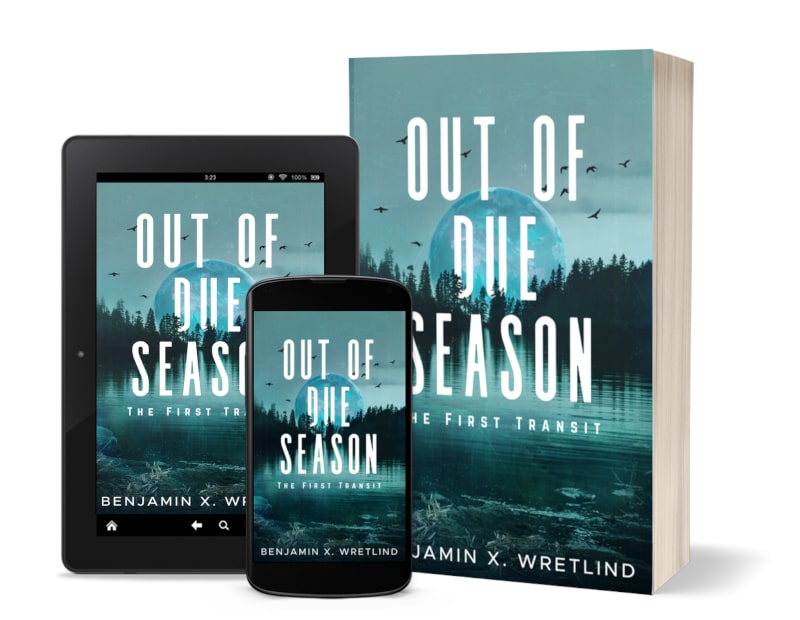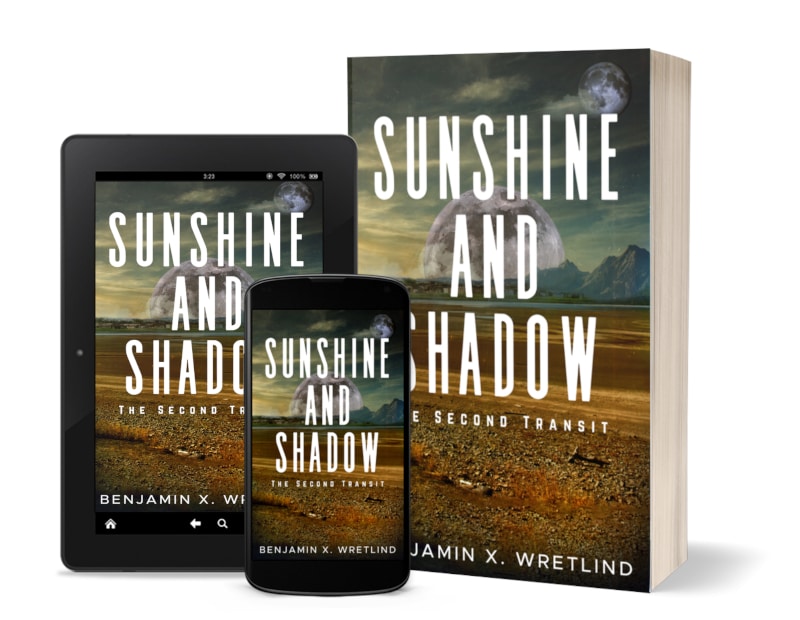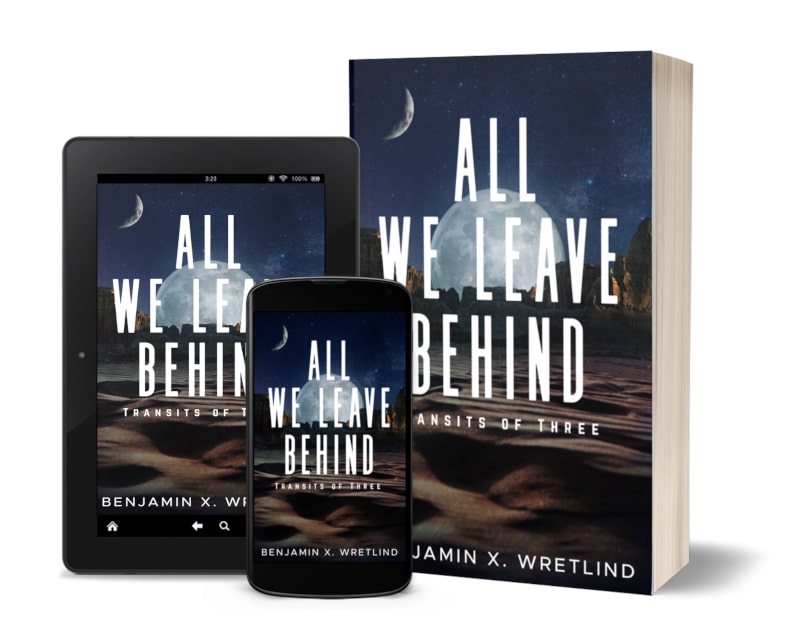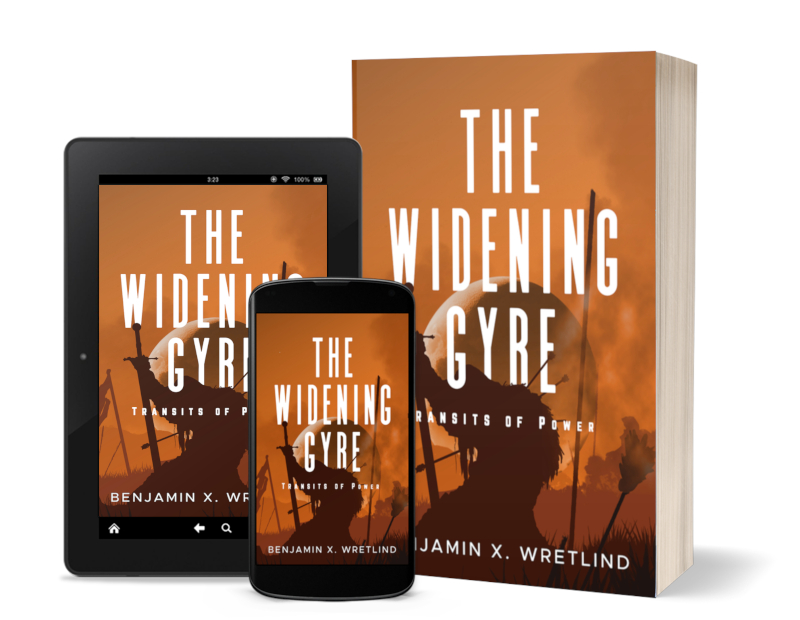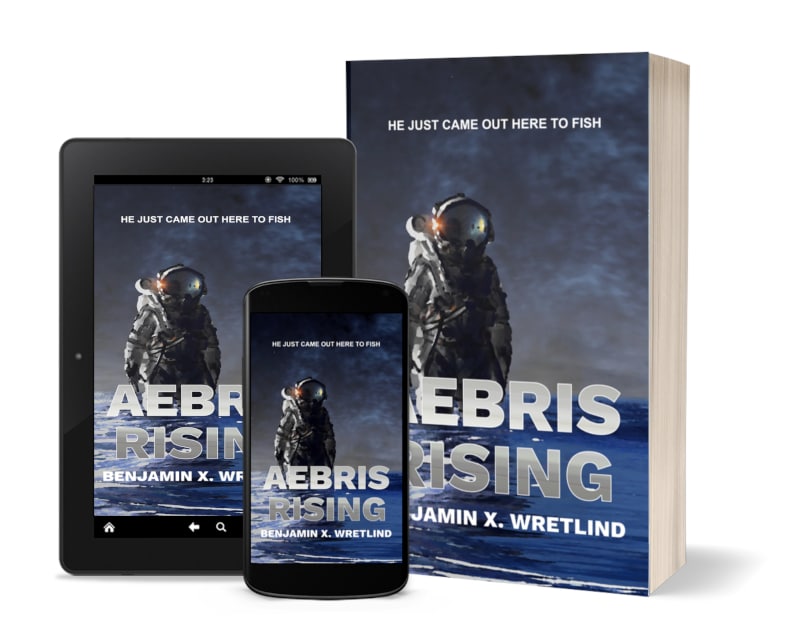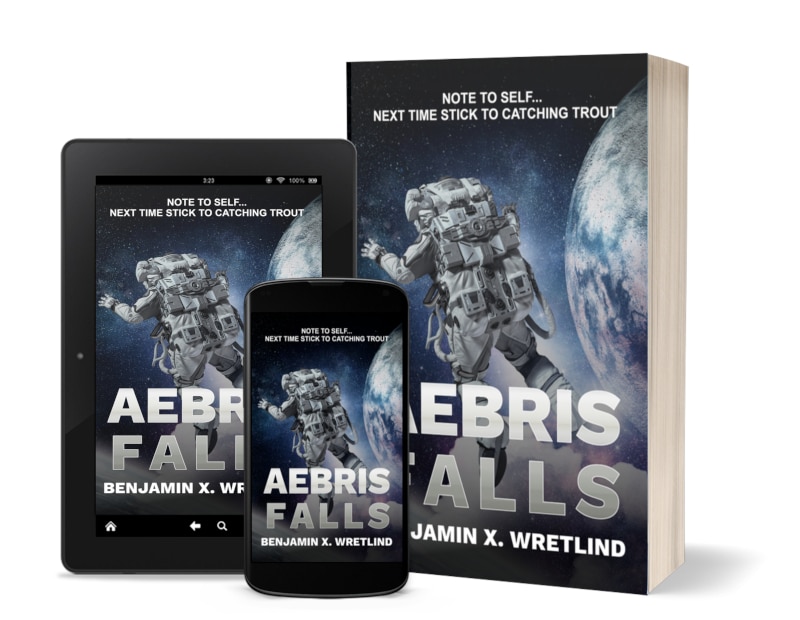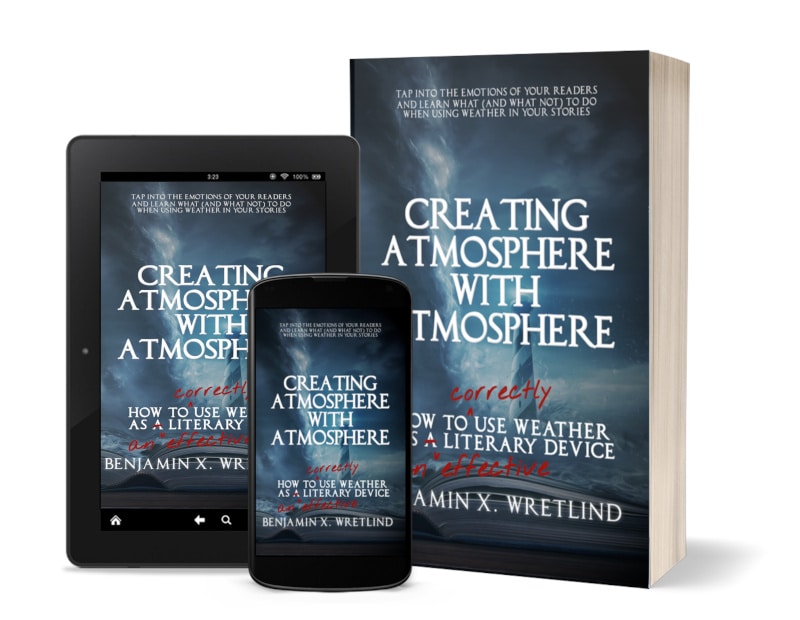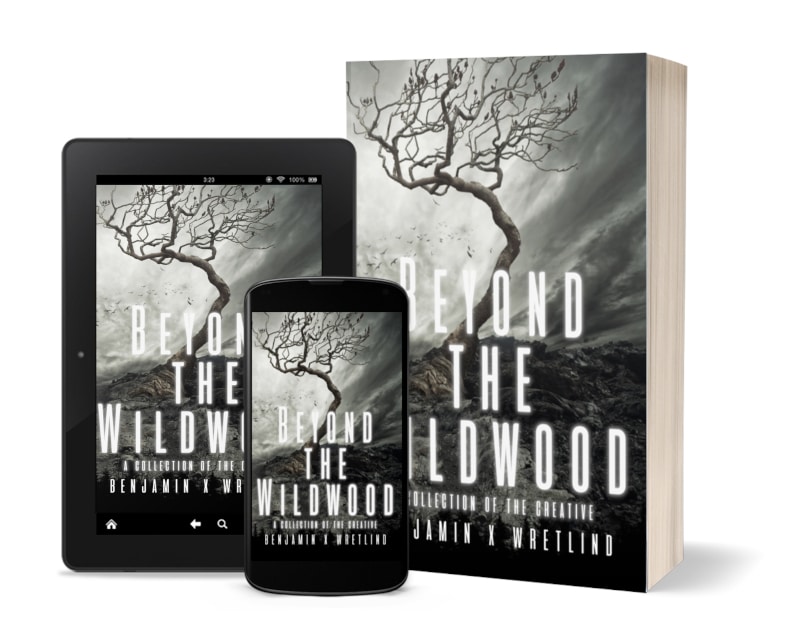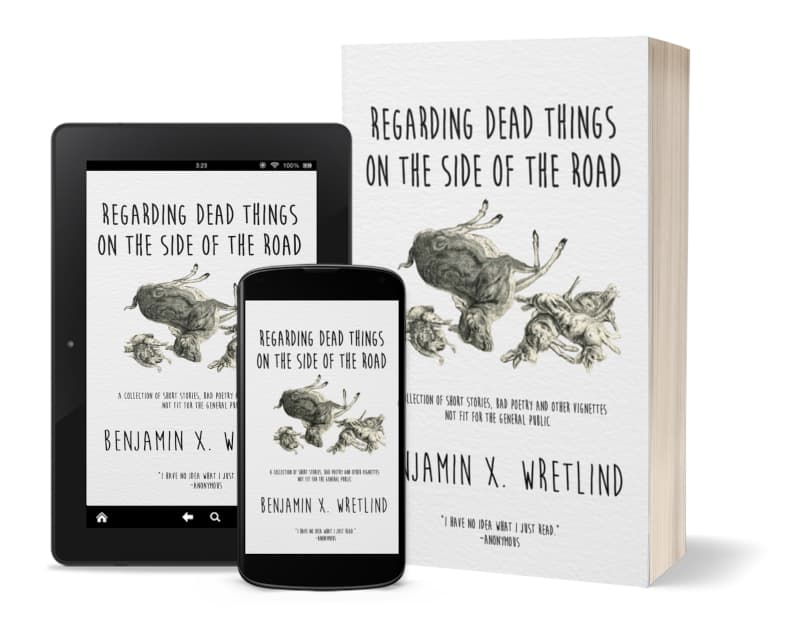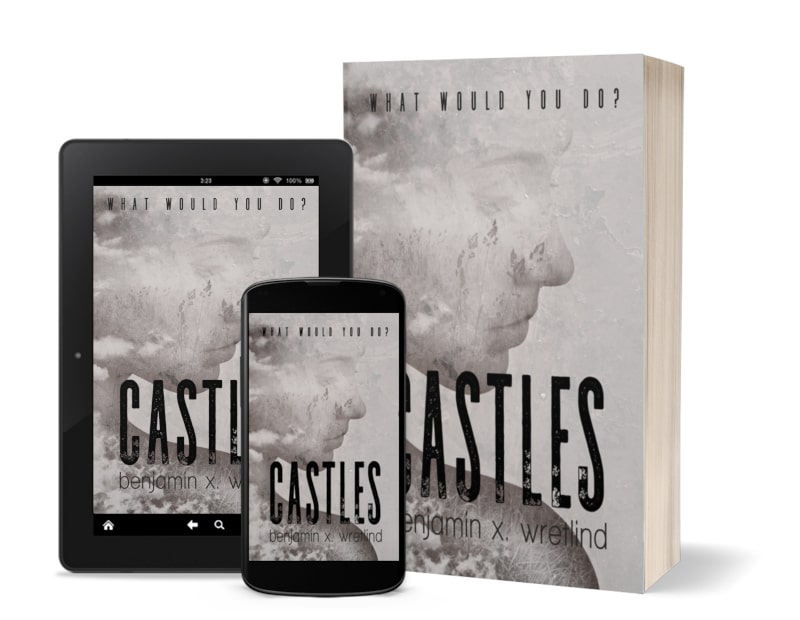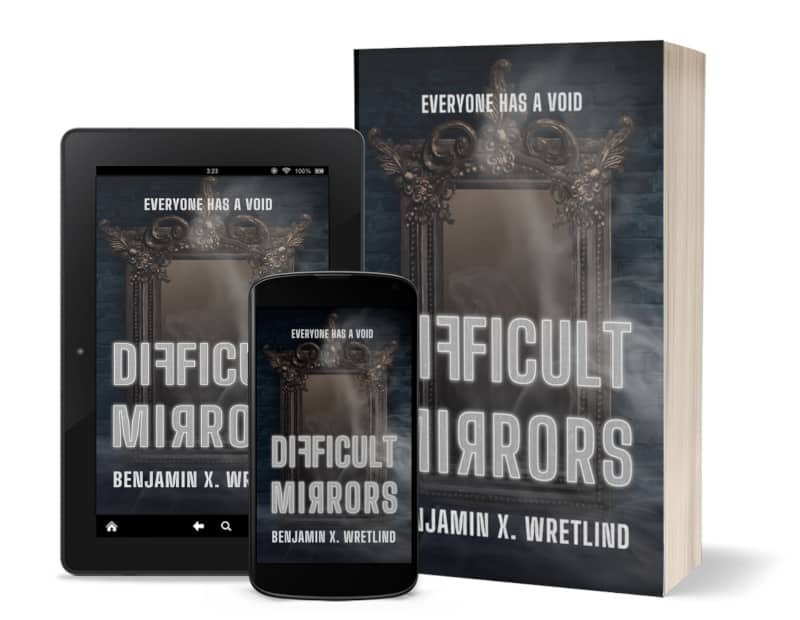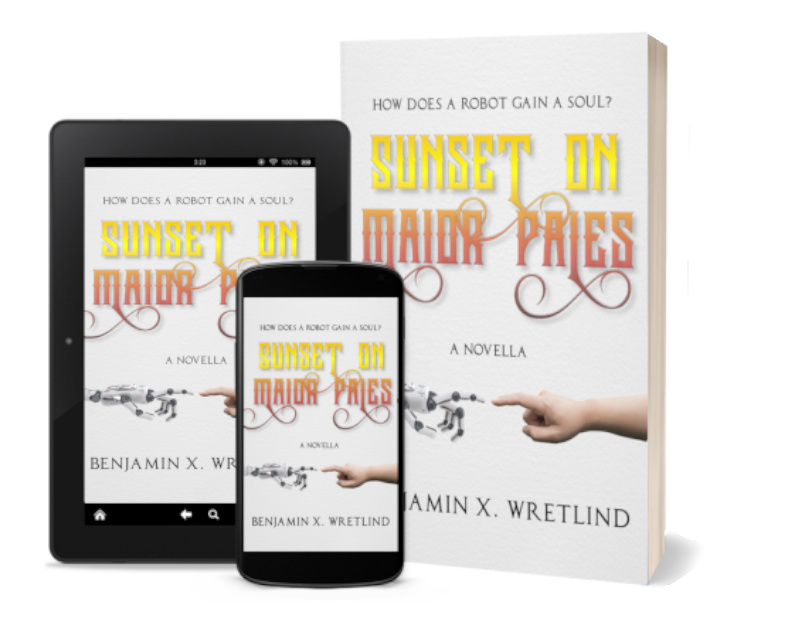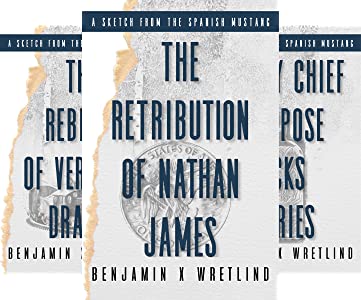Short Story: The Royal
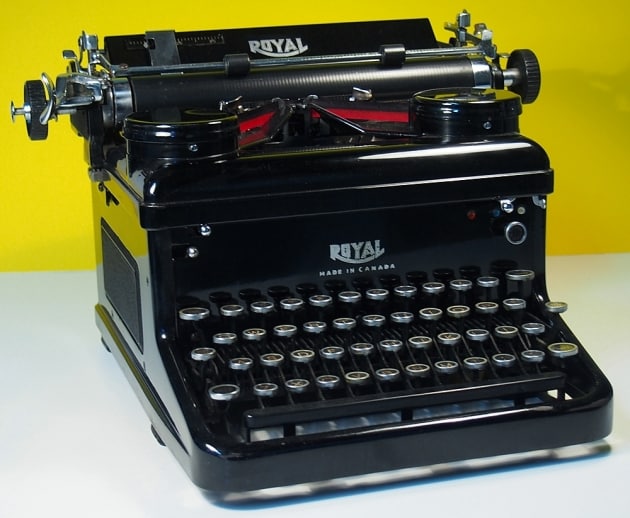
I used to own a 1936 Royal typewriter, the “original laptop.” It was a heavy beast, too. This story was written in 2003, back when the typewriter was on the desk beside me. I lost it in a flood about fifteen years ago, but I still have that itch to find another. I just hope the one I find doesn’t come with something attached to it.
Free us.
I read the line over again, my mind racing with a thousand questions that careened around my skull. What did it mean? Free who? Was this typewriter haunted, or was my wife playing a joke on me? Did I bring a ghost home in the tattered carrying case that lay on the floor next to my desk? Who was I expected to free?
With haste, I pulled the paper from the carriage and threw it on the desk. I must have woke last night, climbed the steps to the attic, pulled out a piece of paper, fed it through the Royal and typed out whatever bled from my mind. Yes. That had to be the answer.
The Somnambulist Writer.
I pushed the typewriter back and pulled my laptop from the drawer. Of all the inciting incidents or other nuggets of prose that I encountered daily, this was one event that deserved documentation. I could even drag it out into a short story or a novel if I ever had the real energy to write again. God knows I’d been lacking ideas and motivation for the longest time. Whatever bug nipped at me decades ago to make me write that first novel must have shriveled up and died. I hadn’t been bit in a while.
As the screen glowed, I glanced at the typewriter. I purchased it from an antique shop, drawn to its lacquered finish and glass keys. The first time I laid eyes on it, it mesmerized me. Here was the epitome of the writer, the struggling artist, sitting at a wooden desk with his 1936 Royal. The ceiling fan raced to cool the room while the fedora hung on a hook by the door. I smelled the ink, the platen and the musty stink of years of hammering out… what?
I was proud to own it. For years, I had searched through antique stores for the perfect antithesis to my technological world. I wanted that original laptop. I wanted to feel the words as I typed them out on twenty-pound paper, each letter applied to the page with a little more effort. I entertained dreams of taking a journey across the country, stopping at every greasy spoon I found, seeking inspiration in the strangest of places.
Steinbeck with Charlie.
No trip like that could take place unless I was at the helm of a ‘67 VW Samba Bus with its twenty-one windows and unique aesthetic, and no story could be written from the heart unless I pounded it out on a Royal portable typewriter.
Touch-control.
1936.
Hemingway’s tool.
I finished refurbishing the bus last year. I don’t want a dog named Charlie, and all I needed to find was that typewriter.
Free us.
The words on the paper I’d thrown on the desk drew my attention from the typewriter. The ink bled on the paper as if the ribbon had been soaked, little tentacles of black reaching out from the serif font. I couldn’t take this. More questions lit synapses on fire.
What would make me get up in the middle of the night and type such a thing? Why did I come up here in the first place? Was I subconsciously trying to prompt—no, force—inspiration from the page? What did I hope to accomplish in those two brief words?
Did I even write them in the first place?
I turned the paper over and pushed it to the corner of the desk. I didn’t need to read it again. It was time to put this event to rest and get on with the day. There was planning to do, routes to map, expenses to budget. I was to leave on my journey in a little less than a week, and I still had only the foggiest idea of where I was going.
Out there.
My wife was awake when I left the house. I didn’t want to say goodbye. It just didn’t seem right to leave her alone in that house for a month or two, even if she was initially for the idea. And what was this idea? I needed to leave, if only for a few weeks, to see the country from a fresh perspective. Everything has a story and for every turn in the road, I can type a new chapter out on that Royal.
As I backed the bus onto the street, I caught one last glimpse of my wife standing in the doorway. I didn’t need that. She wasn’t crying, but in the faint light of morning, I saw the hurt on her face. I don’t think she ever understood my mania. She never came to grips with my late nights in the garage pulling out the interior of the Samba. Neither the desk I built inside nor the flushable toilet I installed in the rear impressed her. When I tried to get her to show some emotion toward the tie-dyed curtains I painstakingly crafted and hung over each of the twenty-one windows, all she said was “That’s nice.” In retrospect, she was really asking me why.
I don’t always have answers.
The sun was rising through a thick haze, like a lighthouse piercing the fog at sea—a cliché, but beautiful. It was comforting to know that in just a few hours, I would be at my first stop and my dream could come to fruition. The Royal was secure on the desk, six reams of paper sat in a box next to it, and there was beef jerky in the cupboard. Life was about to improve.
The farmhouse wasn’t much, but it had a certain character that infested the barren land around it. The scent of the country in the mid-day sun filled my sense of adventure as I walked through knee-high grass then onto a path crudely worn by years of little and big shoes, by stroller wheels and wagons, by puppy feet. This was America: the land of the free and all home to millions of stories.
I was off the beaten track, lost in a world told between the pages of a thousand great books. I could almost see Steinbeck on the porch of the farmhouse, talking to Ma Joad about life in the Dustbowl. If I listened to the wind, I could hear talk of California and the great journey they were about to undertake. It was like me, rising out of the cesspool of life to traverse that land of milk and honey. I didn’t know what lay ahead of me and didn’t really care. It was all about the adventure, the free spirit on the road.
It was about doing what I loved to do the most.
It was about writing.
I must have stayed in that house for three or four hours, talking to the family that lived there. They were more than happy to listen to me and even happier to tell me of their impoverished life. I felt a little awkward leaving as the sun crept below the horizon, but I had things to do. I needed to chronicle this stage of my journey on the Royal. I needed to find an empty road and park my Samba, whip out a few pages of prose and feel truly good again.
I quietly passed a bill to the old woman at the steps and thanked her for their wonderful hospitality. I suppose it was cheap of me to degrade their generosity by giving them money, but judging by the look on her face, she didn’t mind one bit. I tipped the brim of my hat and drove off.
West to the cross. North. Free us.
I stared at the paper crudely crammed into the Royal. Did one of the farmer’s kids break into the Samba and type this out while I was in the house chatting? This time I know I didn’t sleepwalk and write whatever was on my mind. There was no way this came from me.
In anger, I pulled the paper out of the typewriter and threw it in the back of the bus. I was not amused. I didn’t plan the details of my trip so closely to have some kid play around inside my vehicle. I said I wanted to experience the great unknown of America, not fall victim to it. What was I supposed to do with this, anyway? West to the cross. What cross? A crossroad? And who am I supposed to free?
Frustrated, I closed the box of paper and looked at the map I’d printed out. I couldn’t write. After all that desire to put words down on paper again, the mystery of the Royal had put a damper on my mood.
On the map, I traced the road from the farmhouse I just visited to my next stop. The highlighted county road passed through two more towns west, then north for a few more miles. At the turning point, my heart skipped a beat. A tiny cross was printed a few more miles west. To the north of it, an unimproved road led to what the map legend called an abandoned mine.
West to the cross. North. Free us.
I looked at the Royal, sitting there on the desk. In the dim light of the Samba, the black lacquer seemed almost empty, as if I looked hard enough I might see something I didn’t want to see. Maybe the kids at the farmhouse didn’t break in. My instinct told me to throw the typewriter out the window. I couldn’t do that, though. I had worked for too long refurbishing this bus and finding the perfect typewriter, only to squander my dream on the foolish notion that the Royal might be haunted.
Haunted. There was a concept I didn’t need to think about. I was sitting next to it, after all. If I went to sleep, what else might be typed? And assuming something otherworldly was typing it, what was I to fear more—the typewriter or the typist?
I threw the map on the passenger’s seat and grabbed the keys. This would not end until I followed whatever directions the Royal gave me.
The mineshaft was sealed. The moon cast enough light to make out the warning notices on the wooden planks nailed poorly across the entrance. “Danger”, they said. “Do Not Enter.” “Keep Out!”
I wasn’t about to disobey. I didn’t plan to dig through mineshafts that looked out of service for decades. I may have packed a flashlight, but certainly not rope, a pickaxe or a hardhat.
I stood at the entrance, looking in with the flashlight. The light pierced the first three or four feet of darkness, then fell off. If I was brought here for some purpose, I hoped that purpose was within that distance, preferably outside the mine. Was I supposed to be shown something or—and here was a scary thought—was I supposed to be drawn to something?
I put the flashlight away and walked back toward the Samba. I intended to turn the bus toward the entrance to get a little more light deeper into the mine, but as my feet navigated the massive rocks in front of me, I heard the distinctive clack of the Royal.
I stopped.
I wanted to turn, to run away.
Whatever I purchased with the typewriter was now inside the bus typing away.
The clacking stopped. In the still air, only my labored breath and the beating of my heart against my chest filled the silence. In the still of the night, under the full moon, time didn’t seem to have a meaning anymore. I felt trapped in the middle of nowhere with a spooky mine behind me and something in front of me hiding behind the keys of my typewriter.
At that moment, I became acutely aware of all the excuses I had made for myself over the years. I could have written anything using whatever I had at my disposal. In my mania, however, I pretended that my next project had to be written this way. I had to have the bus. I had to have the typewriter. I had to immerse myself in the act of writing so much that I needed to become someone that I really wasn’t meant to be.
I crept alongside the bus, watching for any movement inside. The shades were drawn, and the prospect of opening the door was not appealing despite my hand on the handle. More questions assailed me. What if that something inside had nine-inch teeth that wanted to dig into my flesh? What if I opened the door to find a monster with two heads, seven arms and claws for legs that would snap at my torso and cut me in half?
What if it wasn’t something hideous? What if it was innocence trapped in some hell, screaming for help?
What if it was a child?
I must have held the door handle for a good minute, trying to muster the courage to whip open the bus door and face whatever waited for me. I had to know not only what had been typing but what it typed.
I was now both frightened and curious.
As I pulled on the handle and let the door swing open, I heard a small voice behind me. My breath caught short in my lungs. In front of me, another sheet of paper stuck out of the Royal. Behind me, someone I didn’t know what there was talking to me.
In one motion, I reached in, grabbed the paper, and swung around to face the speaker. A small boy, dirty from head to toe, stood at the mine entrance. He smiled, cracking his soot-covered face with a gleaming strip of white. He motioned for me to look at the paper my trembling hands were holding.
Free us. Fifteen feet in. We can’t breathe.
I would have finished my trip around the country on a Thursday. I imagined pulling into the driveway, seeing my wife through the window. Her dress would have shimmered in the sunlight and I would have realized how much I really wanted her, how much it would have meant for me not to have left. It has been a long few days, and the ‘67 Samba didn’t make the three-thousand-mile journey. It is still outside the mine, lonely.
I suppose I should get back to writing. The children won’t leave me alone. They don’t want to be free in the sense of running though open fields playing ball or jacks or hopscotch. They want their souls to be free, and unless I finish this chapter of their life—typed away on the Royal their loathsome boss used to own—their lives will remain forever trapped in a desolate place that no one knows.
They died once.
They don’t wish to do it again.
Read more Short Stories, Excerpts and Poems
All text copyright 2003, Benjamin X. Wretlind



